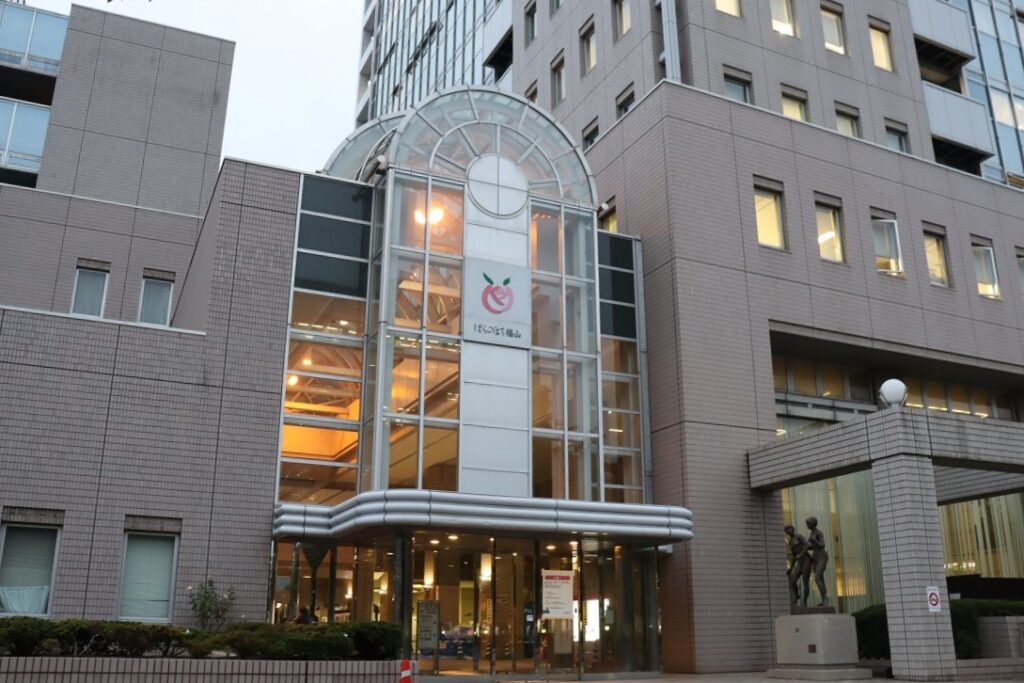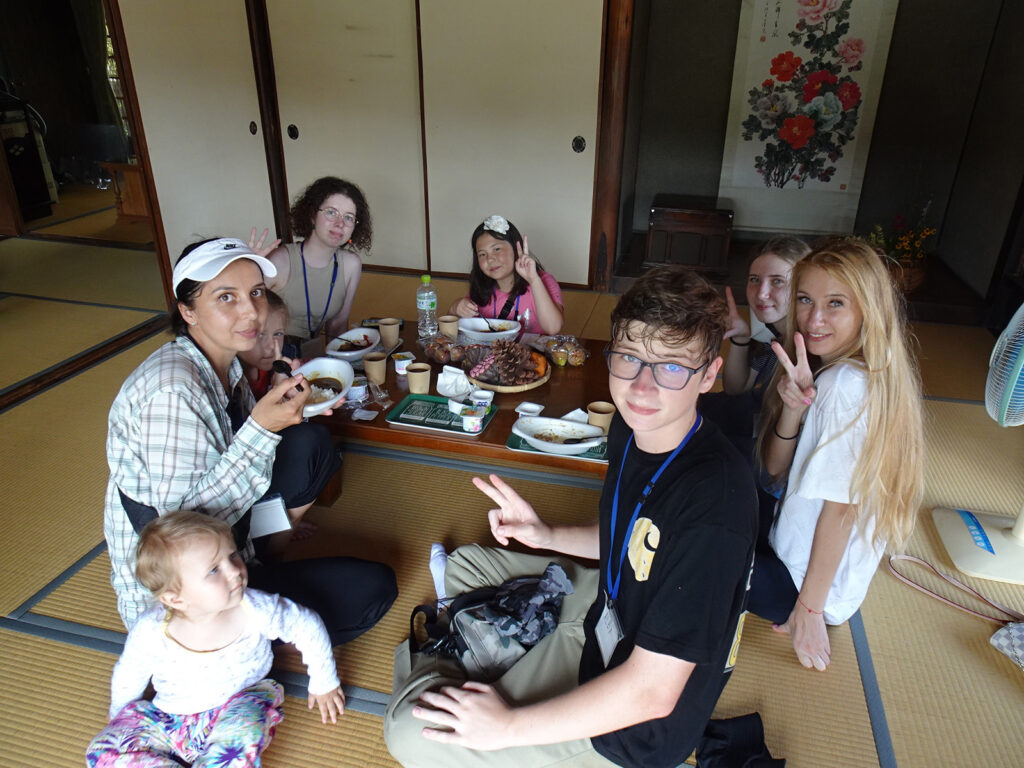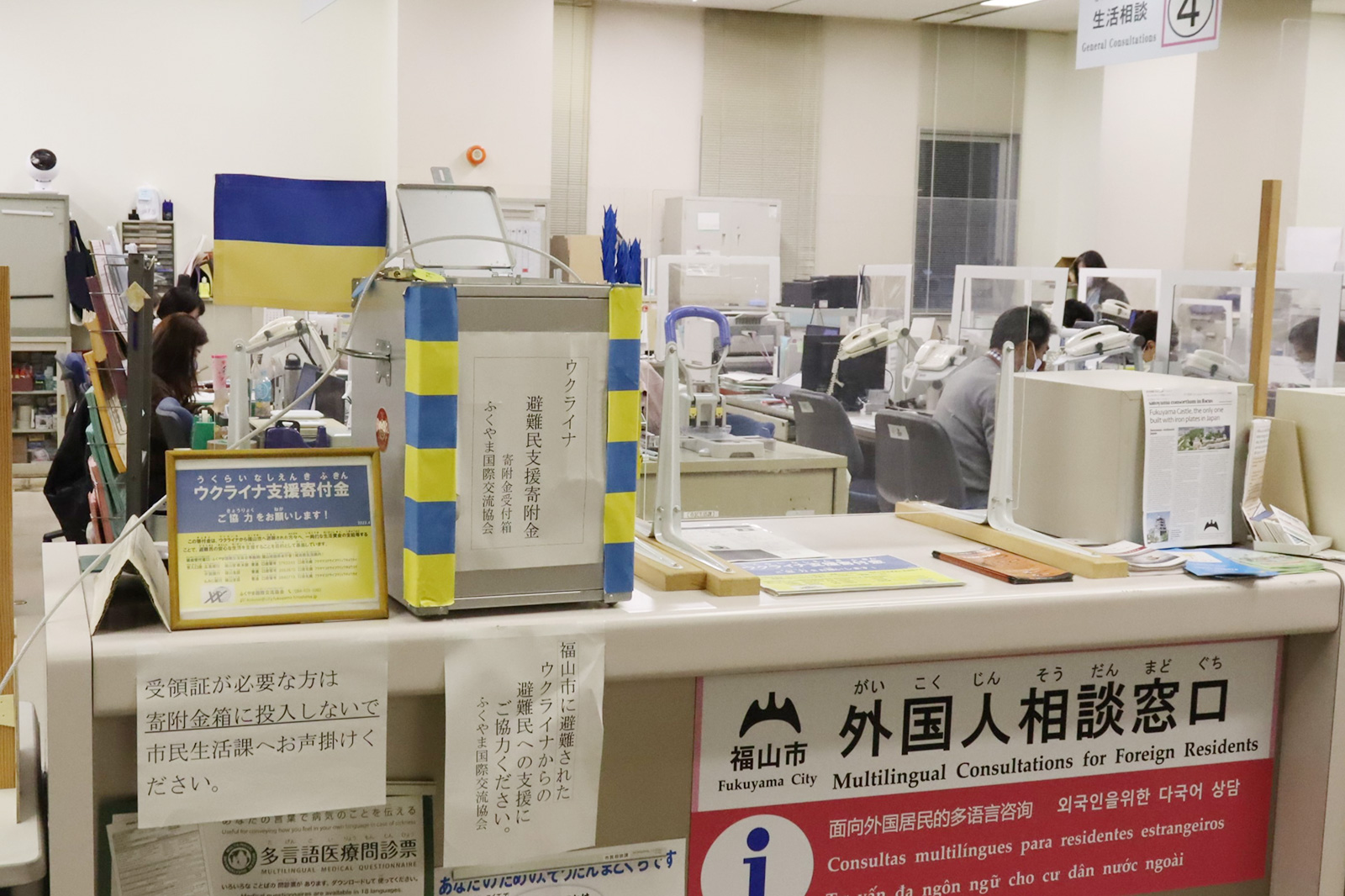Introduction: In this blog post, we will shed light on the situation of Ukrainian evacuees in Fukuyama City, Japan, and the support they have received from various organizations. We will explore the current state of assistance, initiatives promoting interaction and cultural exchange, the daily lives of the evacuees in Japan, and future support plans. Additionally, we will discuss how individuals can contribute to the relief efforts through donations.
Support Situation: Since April 20 2022, the Nippon Foundation has supported Ukrainian evacuees in Japan, including travel expenses, living expenses, and housing environment improvements. Fukuyama City’s Citizen Life Section serves as a one-stop contact point for assistance, supporting public housing and medical-related needs.

The Fukuyama International Exchange Association, located in Fukuyama City’s Higashisakuracho within the Citizen Life Section of the Fukuyama City Hall, has been at the forefront of support efforts. Since April of this year, they have provided financial assistance of 100,000 yen per person. They offer detailed consultations, addressing various issues related to livelihood and employment while ensuring continuous support throughout the prolonged period of the war.

Private Sector Collaboration and Cultural Exchange: The Fukuyama International Exchange Association has initiated collaborative efforts with the private sector to facilitate support and cultural exchange. In September, Yamano kyo Ota Winery, led by President Yusuke Ota in Fukuyama City, invited evacuees for grape-picking experiences. Residents served curry rice for lunch, fostering a warm atmosphere. President Ota expressed his hopes that the grapes harvested during this event would be transformed into wine around June of next year, coinciding with the war’s end, and serve as a souvenir for the evacuees upon returning to Ukraine.
In October, Ishida Shipbuilding Co., Ltd. on Innoshima Island in Onomichi City invited evacuees to their factory facilities for a two-day stay. They were greeted with a powerful performance of the “Murakami Suigun Jintaiko” drumming ensemble, followed by shipyard tours, drumming experiences, and musical performances. President Ishida, aged 65, mentioned his belief that everyone had a chance to speak in Ukrainian and experience Japanese culture, hoping that the visitors enjoyed their time. The Fukuyama International Exchange Association plans to continue organizing similar exchange programs.
Life in Japan: Natalia Fedorovska, a 34-year-old dancer who previously worked in Ukraine and arrived in Japan with her three-year-old son to escape the war, expressed her emotions during the exchange event at the shipyard. She mentioned tears while listening to a Ukrainian hymn played on the flute. She also praised the excellent performances of musicals and taiko drumming and shared her experience of wearing armor and enjoying various Japanese dishes such as yakisoba, sashimi, and oden.
Natalia, who watched a musical by Fukuyama’s “Jewel Roses,” participated in their dance rehearsals for the first time on October 29. She expressed her desire to learn Japanese and eventually teach dance in Fukuyama. Furthermore, she aspires to become a Japanese language teacher upon her return to Ukraine. To pursue these goals, Natalia enrolled in the Japanese Language Department at Anabuki International College of Mirai in October, diligently studying Japanese every weekday. Ongoing Support: Junji Sato, the Secretary-General of the Fukuyama International Exchange Association, emphasized the significant language barrier as a major challenge faced by the evacuees. While financial support from organizations like the Nippon Foundation and Fukuyama City exists, the association focuses on providing.



